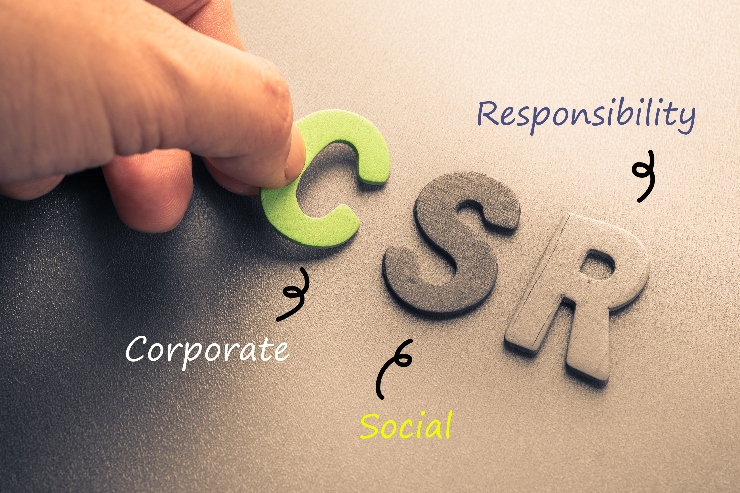Just transition, a framework to ensure that the benefits of transitioning to a green economy are distributed equitably, is the integral backbone to global action on climate change and must be meaningfully inserted into all aspects of the agenda. Jodi-Ann Wang outlines what this could look like.
Another annual UN Climate Change Conference is upon us, happening against the backdrop of a global polycrisis: climate change, biodiversity loss, international armed conflicts, public health threats, and macroeconomic instability. As each disparate crisis interacts and deepens, their reverberations far exceed the sum of each part.
Realising an equitable transition to net-zero societies would not only directly tackle some of the most pressing socio-ecological challenges today, but also have the propensity to redress historical and systemic global inequities. One of the exciting developments for COP28 is the continuing discussion around the Work Programme on Just Transition, but just transition considerations need to be embedded across more of the agenda at the summit. In this commentary, I set out why and how this could happen.
Respecting, protecting and promoting equity through the Global Stocktake (GST)
The Global Stocktake is a process carried out every five years by all parties to the Paris Agreement. Its goal is to collectively assess where we are, where we need to go and how we can get there in terms of existing climate action and the need to course correct. It involves efforts on mitigation, adaptation and ‘means of implementation’, which include climate finance delivery and technology transfer globally. An impactful GST requires all actors to put forth reflective and socially just responses: the urgency to address the climate crisis must be matched with considerations of equity.
The ‘means of implementation’ act as a strategic lever for delivery. They can either enable or erode the global architecture of climate cooperation (as a lack of climate finance delivery has done). This includes addressing the socioeconomic impacts from implementing climate response measures, such as inadequate local community consultation on climate projects, exploitative mining practices for clean energy production, or debt injustice. It requires the GST to be grounded in agreed principles and obligations for sustainable development, environmental protection, just transitions, and human rights. In the COP27 Sharm el-Sheikh Implementation Plan, parties acknowledged their respective obligations on human rights, including the right to a clean, healthy and sustainable environment. Businesses and financial institutions alike must uphold the same in their implementation.
At COP28, what is at stake is how the GST reckons with historical contributions of greenhouse gas emissions, particularly how rich countries have delivered (or not) on their pre-2020 and post-2020 climate commitments (see diverging opinions on pre-2020 contributions here and here). Historical contributions are a critical matter of climate justice, and shape further action through the next round of nationally determined contributions. As mistrust deepens in negotiations and among non-state actors, an equity-centred GST would help strengthen cooperation.
Strengthening the new frontiers of justice and just transition
The just transition is so much more than an energy transition. It goes without saying that decarbonising the energy system enables wider sectoral transformations, and in the process can create massive social opportunities, not least in decent green jobs but also poverty eradication, green industrialisation, social inclusion, and innovation generation. A justice-centred approach is a non-negotiable consideration for the goals of phasing out fossil fuels, tripling renewable energy capacity, and doubling energy efficiency. Beyond this ‘triple-double’ goal for the energy transition, more can be done to push the frontiers of climate justice and just transition.
Ushering in greater financing for climate adaptation
Financing a just transition for adaptation helps reconcile the uneven distributional impacts of climate change. COP28 will be momentous, as negotiations over a ‘global goal on adaptation’ will still be ongoing. A chronic imbalance in supporting and monitoring adaptation as well as recognising the global responsibilities for strengthening adaptation (including in terms of technology and disbursing finance for implementation) can fuel injustice. From a finance perspective, embedding justice into the design of adaptation measures requires considering factors such as strength of debt capital markets, insurance and risk management, and the creation of an enabling police environment. It also requires corporations to consider the consequences of their adaptation actions, including divestment decisions from vulnerable markets. What seems effective in the boardroom can undermine livelihoods and shift risks onto already vulnerable communities.
Operationalising the Loss and Damage Fund in a way that delivers justice
The COP27 decision to establish a new Loss and Damage Fund was a mark of progress after decades of climate justice advocacy. To truly deliver justice to the frontline, the fund must not replicate the same financial architecture that has exacerbated social and environmental injustices in the first place. While deep divisions continue over the basic architecture of the fund, including its location and allocation mechanisms, focus must remain on providing new, additional, adequate and predictable financial support.
Advancing human and ecosystem health through ‘One Health’
COP28 is expected to mainstream health and the climate-health nexus into the climate change agenda. ‘One Health’ is an integrated, unifying approach to balancing the health of people, animals and the environment. Climate change fuels the spread of antimicrobial resistance and infectious diseases, and public health risks increase following extreme weather events. Addressing the intimate links between health, humans, animals and the environment can integrate a just transition lens. Ecosystem services are more accessible in wealthier neighbourhoods in cities, and the legacies of past and present disinvestment in low-income neighbourhoods and communities of colour deepen environmental racism. Inequitable urban planning can perpetuate unequal exposure to reduced air quality, chemical pollutants, and heat stress, which threaten human and animal health alike. Around $11 billion a year is needed to implement One Health globally, requiring all financial actors to play a key part. The Quadripartite Organisations of the UN Food and Agriculture Organization, UN Environment Programme, World Health Organization, and World Organisation for Animal Health are investigating financing mechanisms to increased funding at the country level.
Embedding intergenerational equity
No longer can we ignore the fact that the planetary crisis is an intergenerational problem, limiting the options in, quality of, and access to natural and cultural resources that will serve all future generations’ interests. Decisions made today – financial, economic, environmental, social and others – will affect the future we pass on to our descendants. Wise spending today to repair, protect and rehabilitate the environment while transitioning away from a fossil fuel-based economy and into a greener system will leave future generations a liveable and sustainable planet.
While equity is “complex and multidimensional”, as the GST Synthesis report rightly points out, equity considerations can and must be effectively integrated into climate action. Just transition is about people: workers, communities, supply chains, consumers and other impacted stakeholder groups. For COP28 to deliver a successful outcome, it needs to give practical expression to this long-standing just transition agenda.
- This blog post is published in collaboration with LSE’s Grantham Research Institute on Climate Change and the Environment.
- The post represents the views of its author(s), not the position of LSE Business Review or the London School of Economics and Political Science.
- Featured image provided by Shutterstock.
- When you leave a comment, you’re agreeing to our Comment Policy.






Neglects crucial importance o fcarbon taxes, and a basic income to compensate low income households.